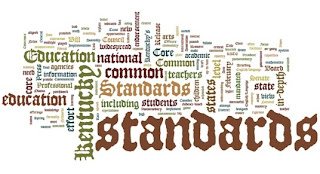And on that note, I ask you, how do you choose to live? What part of your journey will you cherish?
Common Core Standards
Defending the Reading Workshop in the Common Core Era
- Think critically
- Communicate effectively
- Collaborate
- Create and innovate
Deeply Reading a Diorama
The Times They Are A-Changin’
Dissonance
- Balancing informational text with literature
- Building knowledge in the disciplines
- Staircase of complexity of text in the classroom
- Text-based answers
- Writing from sources
- Academic vocabulary
Reading Activities vs. Really Reading
Which of these activities would you consider more valuable during the time allotted for reading in your language arts block?
A: Handing out an article about the Titanic accompanied by a list of ten literal level comprehension questions for students to complete. Encouraging students to scan the text to find the answers.
OR
B: Handing out an article about the Titanic and instructing students to read it and think about the new information they learn as they read the article.
What about this scenario?
Following a mini lesson on reader’s “tone”, which do you consider to be more valuable?
A: Handing out a blank piece of paper and allowing students ten minutes to sketch the setting of their independent reading book. At the conclusion of ten minutes of drawing, asking students to switch papers with a friend and asking partners to reflect on the details of the sketch.
OR
B: Asking students to pay attention to the author’s “tone” in their story as they take out a self selected book and read independently for twenty minutes.
In my opinion, the only choice in both of these examples is B. The reason is simple. Choice B requires students to read large chunks of text for sustained amounts of time. Both Choice A examples are what I lump into the category of “reading activities”—stuff done in the name of reading that has little or no real reading involved. Little to no reading means little to no practice. Little to no practice means little to no improvement.
When it comes to student reading achievement, there are four tenets that guide all of my instructional decisions:
- Students need to read more pages.
- Students need to read more often.
- Students should not read books that are too hard.
- Students need expert guidance to grow.
If time were unlimited, maybe we could justify example A activities. However, time is a valuable commodity in education and if we waste it on neatly packaged “activities” children will never achieve the levels of proficiency and meet the standards that we aim to set for them.





